‘Getting shot saved my life’: How I escaped hell of Vladimir Putin’s war
Exclusive: After being forced to join the Russian army in the eastern Ukrainian city of Luhansk, Azad Yousuf Kumar did not believe he would make it back alive to his home in Kashmir. He recounts his ordeal to Shweta Sharma

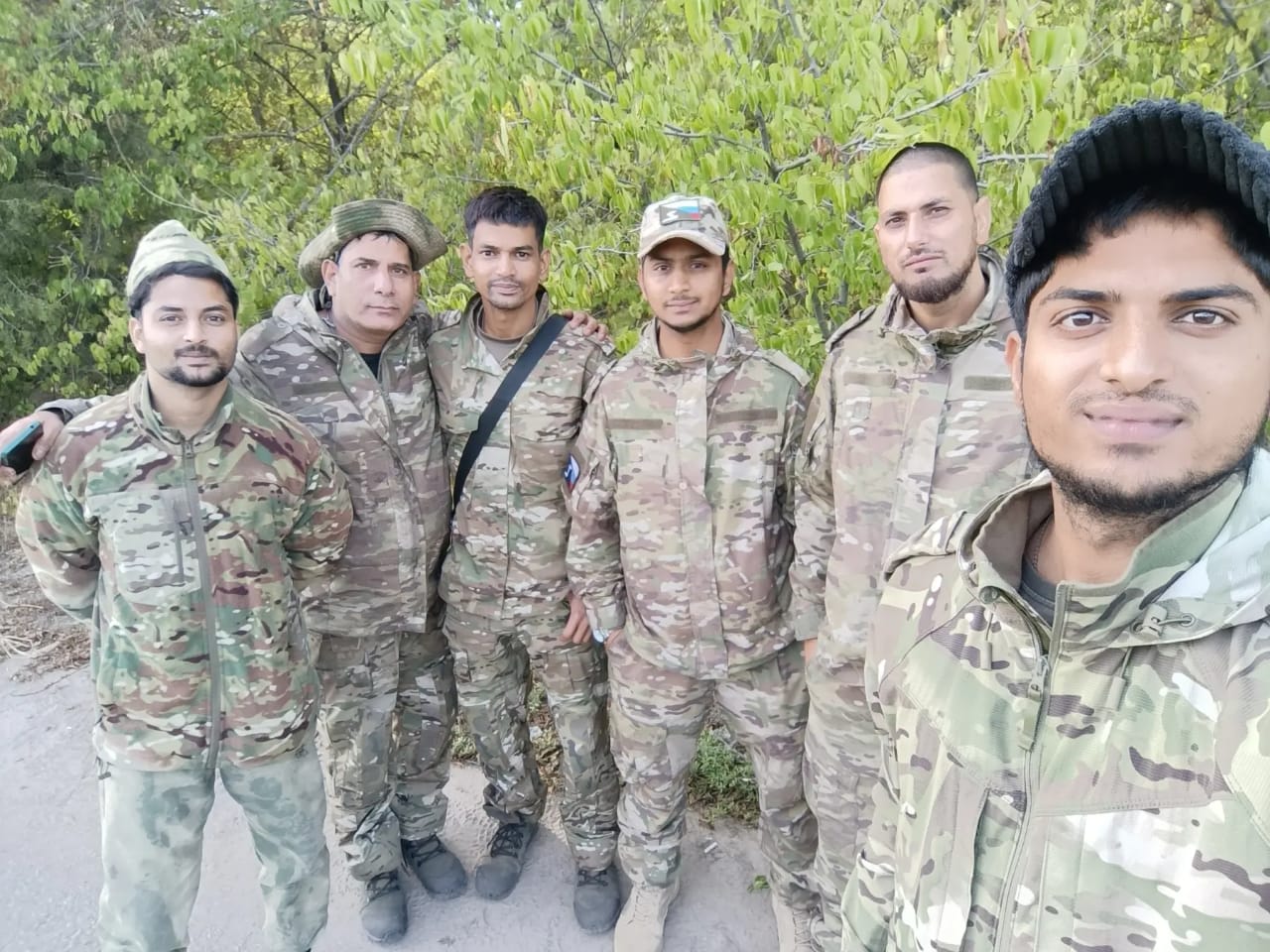
It was a chilly December morning in the eastern Ukrainian city of Luhansk when Azad Yousuf Kumar was woken up by his Russian commander and told he would be learning to use an assault rifle. Azad, 32, who had never used a weapon before in his hometown thousands of miles away in India’s Kashmir, became nervous as his commander shouted instructions at him.
Confused and frightened in a foreign land in the grip of a prolonged war, Azad accidentally shot himself in the foot. That bullet became a defining moment in Azad’s nearly year-long stay on the Russian battlefield – a moment he says saved him from being killed in a war for a country that isn’t his own.
“I was cold, shivering and panicking while training with an AK-47, and ended up shooting myself in the foot as my Russian commander shouted instructions to fire the gun from both hands one by one,” he tells The Independent.
Azad was among the group of six Indian men who returned from Russia in September after spending months stuck on the front lines of the war against Ukraine. These men, who were seeking jobs, say they were lured into fighting for the Russian military. Most of them came from poor families and were looking for employment outside India for a better future.
Now speaking to The Independent from the safety of his home in Kashmir, Azad says he had been looking for work abroad when he was unwittingly recruited into the Russian army by a famous YouTuber, who promised him a high-paying job that required no prior experience.
“Those nine months were the toughest days of my life. I’ve escaped hell, and I’m just happy to be alive and back home with my family,” he says.
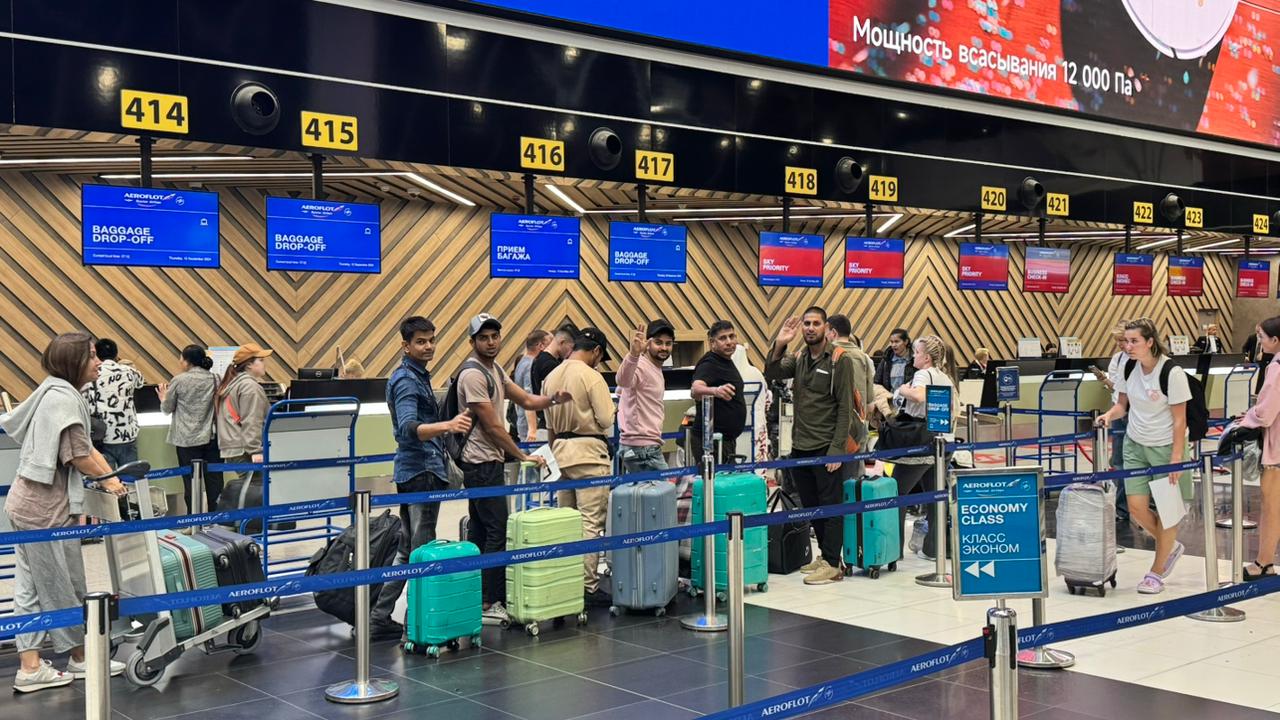
Azad witnessed death and devastation, enduring gruelling days in harsh weather as missiles rained down around him.
His lowest point came when his 23-year-old friend, Hemil Mangukiya, was killed on the battlefield, and Azad saw a graphic picture of his body after a catastrophic head injury.
“That day I broke down when I saw his picture. I cannot forget that sight to this day. After his death, I felt I would be next, and that my death was certain,” he says.
However, the bullet injury, the death of his closest friend, and the constant fear of dying were not the only struggles Azad faced – he was also deeply homesick. He endured the pain of being away from his pregnant wife when she needed him the most, he says.
“I found out about my son’s birth when I was in the hospital. She cried about my bullet injury, and I told her that I did it deliberately to avoid going to the front lines, to ease her fears, as she was already going through a tough time,” he says.
“I was happy about the birth of my baby, but the circumstances weighed even more heavily on me. I just wanted to get out of there.”
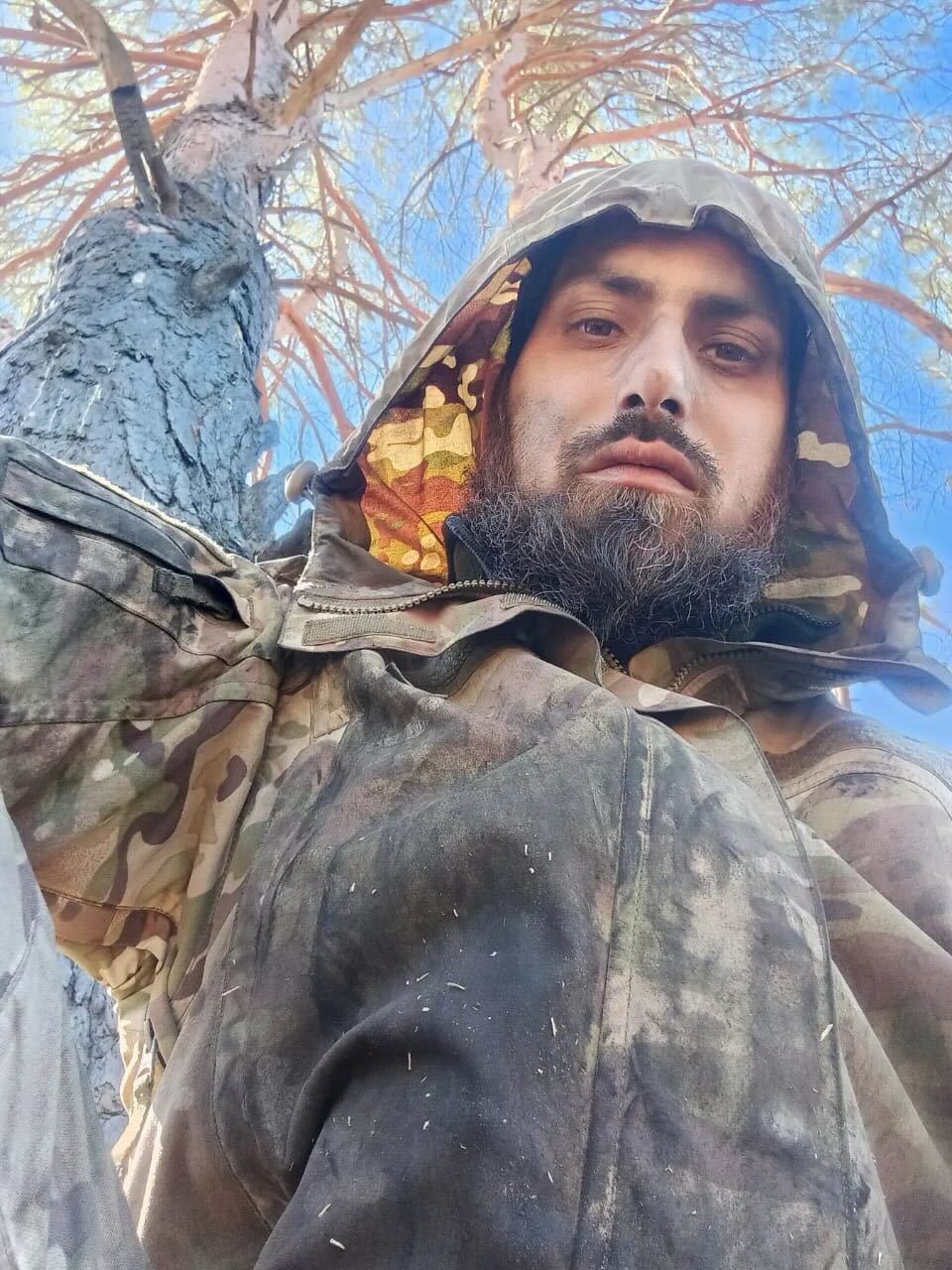
Azad says he travelled to Russia after being recruited as a “security helper” – work arranged by a YouTuber who he says gained his trust with his vlogs in which he promised safe jobs that did not require any prior experience. A commerce graduate who used to work with his father digging tube wells, Azad says he thought it was his best chance at getting a well-paying job in a foreign country, and left home on 10 December 2023. He arrived in Russia nine days later.
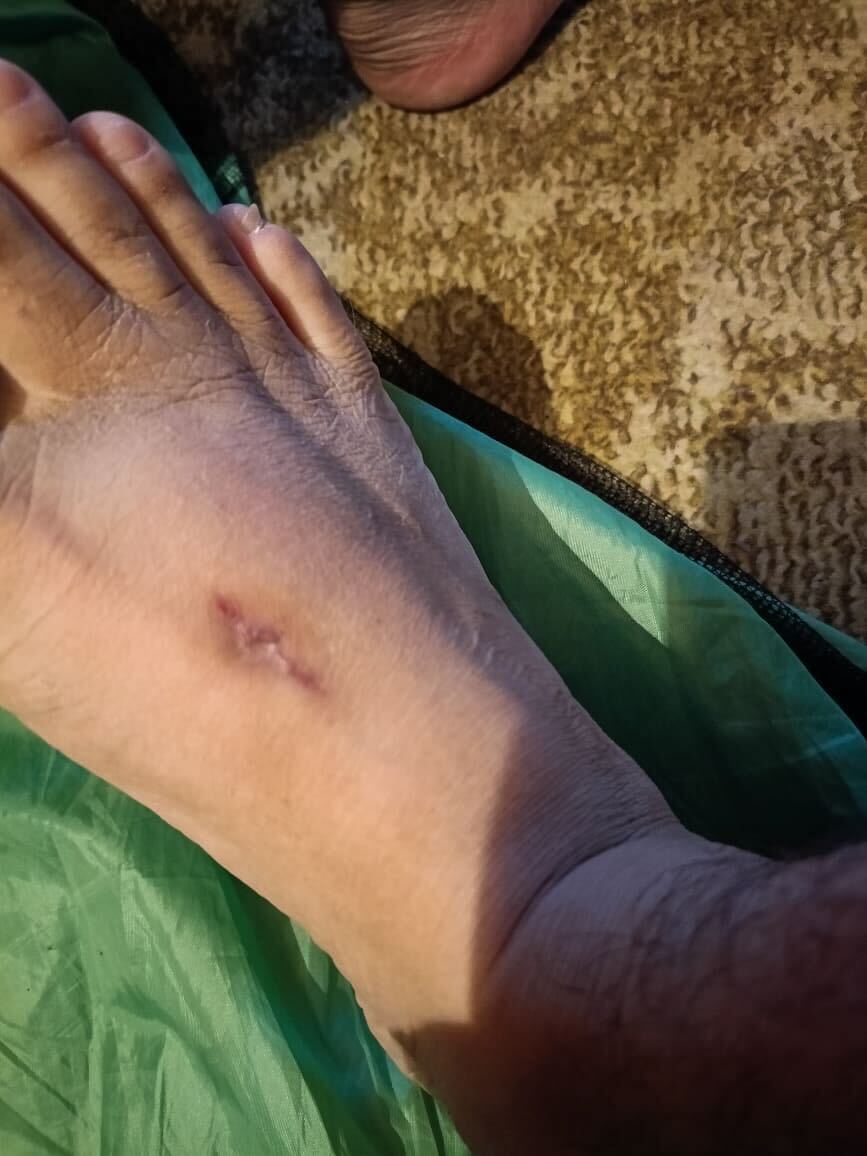
He took a loan of Rs350,000 (£3,137) from his brother, and a flight out of Srinagar in Kashmir to Mumbai in the western state of Maharashtra. There he paid Rs150,000 (£1,344) to someone from the YouTuber’s team, who arranged the tickets to Russia. Azad, along with five others, including Hemil, flew to Chennai in the south of India and then to Moscow.
“That was like a dream come true. But life turned upside down when we were picked up by Nigel, an Indian man who was fluent in Russian and had arrangements with the Russian army,” he says.
Azad says he paid another Rs30,000 (£268) to Nigel, who then handed him and the others over to the Russian army. He was pressed into signing a contract, which was in Russian, as everyone involved kept telling him that it was a safe job and that they need not worry.
“We had to sign the papers. We had no option. Nigel yelled at us and told us to not make his work difficult by asking questions or stepping back. We had already paid Rs350,000 by then and did as they told us,” he says.
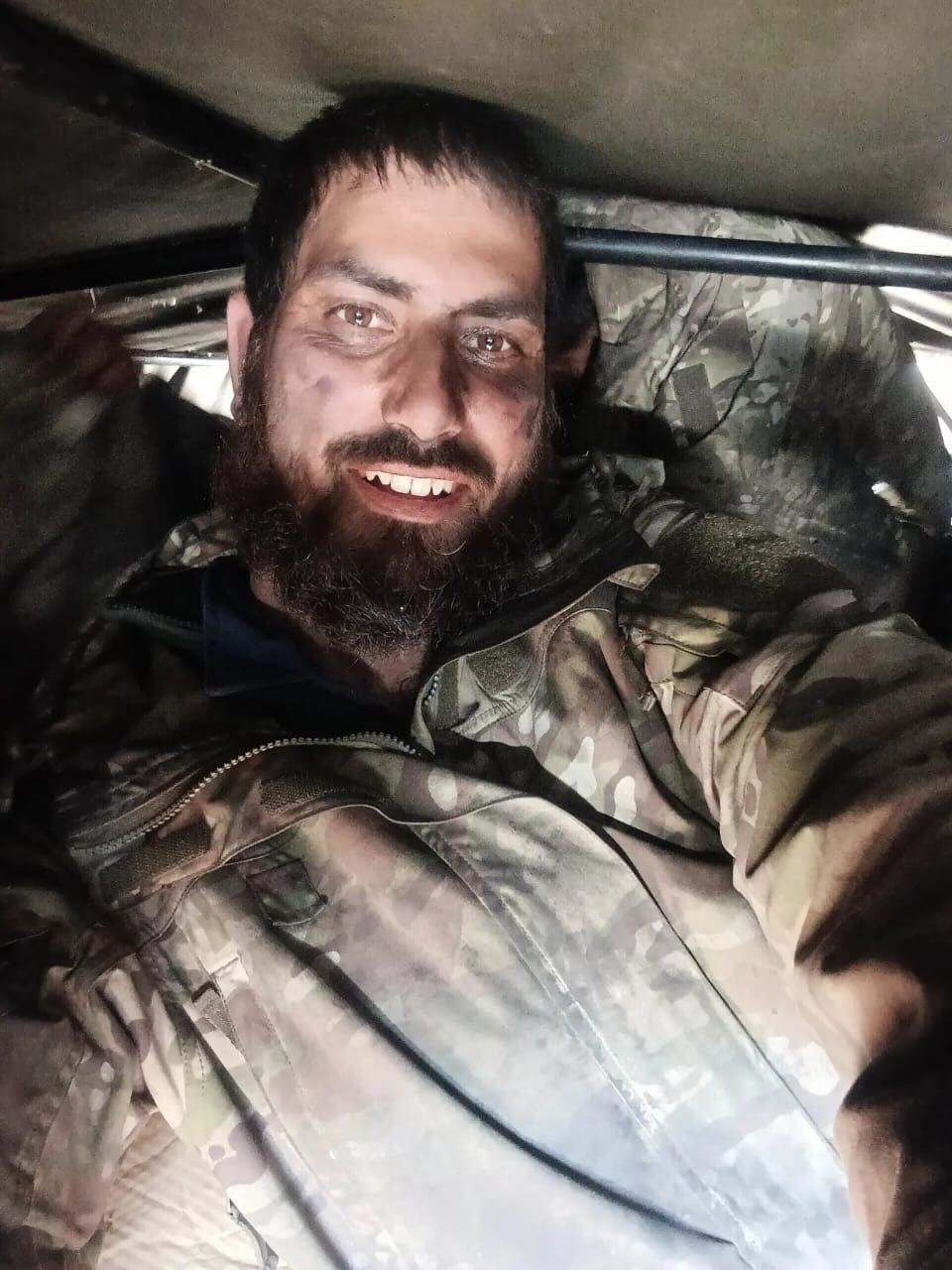
Azad was then taken to Luhansk with more new recruits, and they were divided into different batches.
Russia illegally annexed the Luhansk region, known in Russian as Lugansk, several months after its February 2022 invasion of Ukraine, along with three other regions, though it does not fully control any of them. Much of Luhansk has been occupied since 2014, when Russian-financed separatists took over swathes of territory in eastern Ukraine after large protests prompted Russia-friendly president Viktor Yanukovych to flee the country and Moscow’s forces seized the Crimean peninsula.
In total, almost 100 Indian men, some as young as 22, have ended up on the front lines in Ukraine. The Independent previously reported how many feel they were tricked into serving with the Russian military after being promised safe, secure jobs in Russia and other countries.
“I was the tallest and had a better build, so I was kept with the Russian military men,” Azad says. It added to his fears that he would taken to the front line and forced to fight as a mercenary.
“After 5-6 days, they threw us into training grounds and gave us a gun, which I had never even seen before.
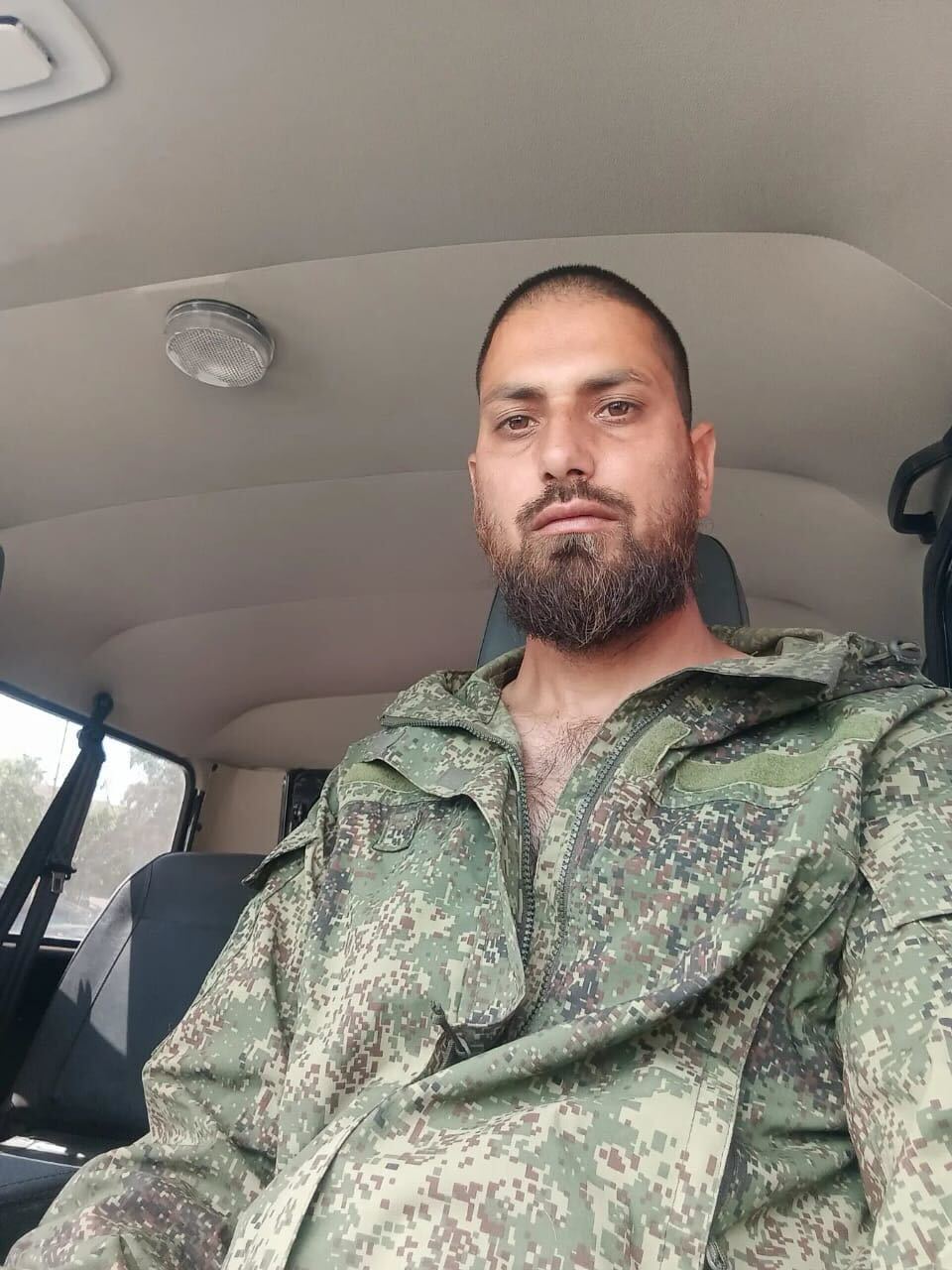
“I think I was chosen to operate alongside the Russian army due to my build, but during the training I got hurt, and that was the reason I was not sent to the front line to fight but [was instead allowed] to do menial jobs.
“Getting shot in the foot is the reason I made it out alive from there, and I am thankful to God that it happened to me.”
Azad says the gunshot wound was itself a matter of life and death, despite being in his foot, as he was losing blood on the way to the hospital and the facility was far from where they were training.
“In the car, they kept asking me to keep my eyes open and said I might never wake up if I [went to] sleep. They slapped me to keep me awake, and took me to the hospital where I received treatment for 18 days,” he says.
Azad says the hospital he was being treated in came under attack from Ukrainian drones and missiles, and he was evacuated on a stretcher at least twice during his 18-day stay there.

“The sirens used to ring, and all the patients and staff would be then taken to an underground safe place. It was in those moments I realised what kind of danger I was in, and I did not inform my family about this injury or the grave situation,” he says.
His family came to know about the gunshot injury from another Indian in Russia. “I had to lie to them about the injury, and told my brother that I shot myself deliberately to avoid going to the front line so that they worry less about me,” he says.
Azad earlier spoke to The Independent from the Ukrainian front line – at that time speaking anonymously for his own safety – and expressed his fears that he would never be able to hold his newborn son or meet his family again.
His brother Sajjad Ahmad recounted his family’s months-long struggle with the Indian government to get Azad out of Russia. He said he had been sharing with his brother pictures of his newborn son to keep his morale high.
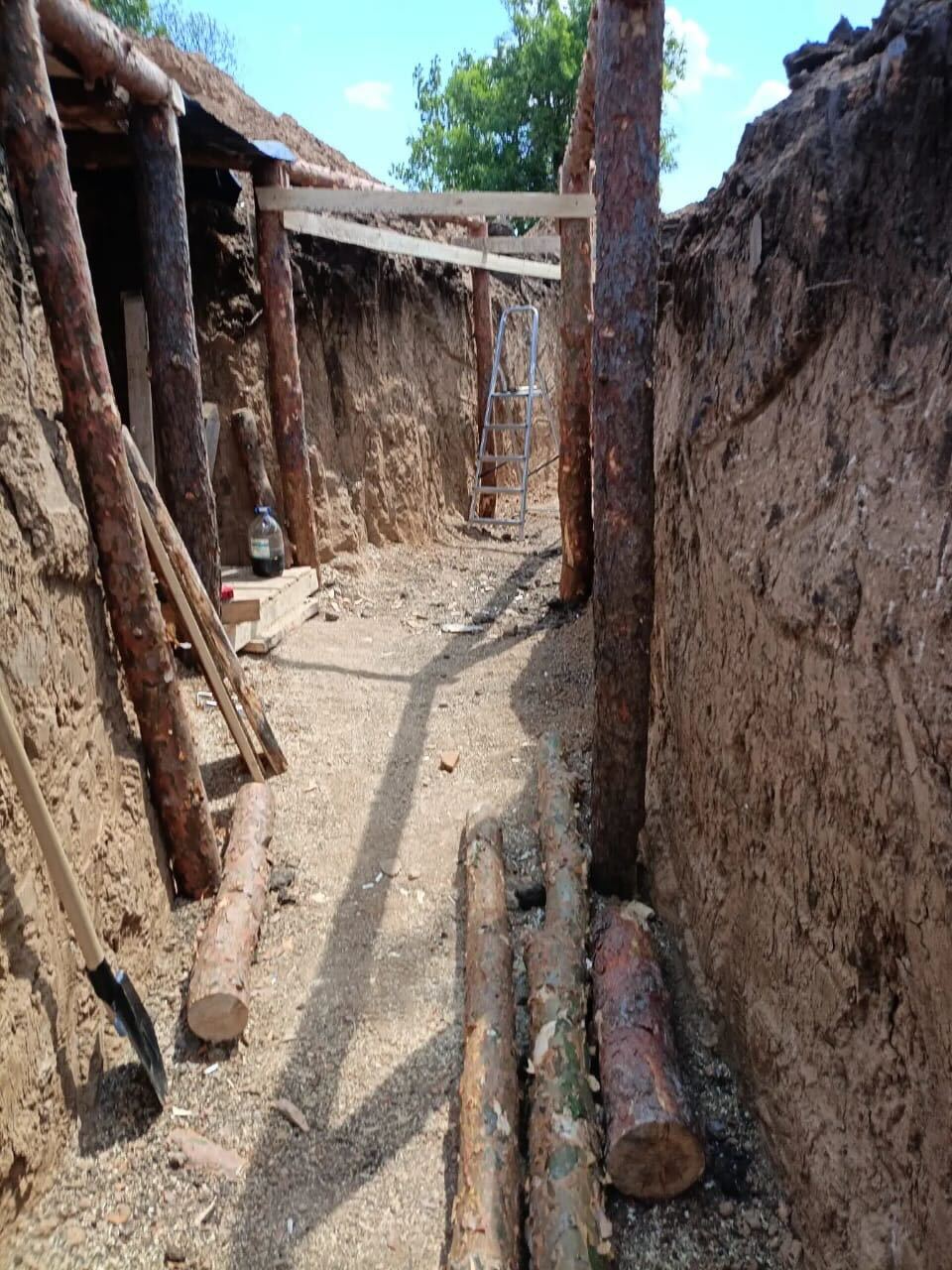
As he landed in Srinagar on 13 September, Sajjad went to receive his brother along with his father and other family members.
“Azad got all emotional and cried as he walked towards our father to hug him. He has escaped death’s door and we are just happy to have him back,” his brother said.
Both Azad and Sajjad said they had lost hope that he would return safely from Russia.
“I feel it is a dream that I am in Kashmir. It is only a miracle that I am alive and back,” Azad said.
Azad has recovered the Rs350,000 he borrowed from his brother, with the salary paid to him by the Russian army. But he claims the other men who went with him have not received their payments. He says they were told that it would take some time to release their money.
“We are waiting for the payment for the four months we worked there. I didn’t think it was wise to stay there for it. All I wanted was to return.”
According to the Indian foreign ministry, of the 91 Indian nationals identified as having been inducted into the Russian army, eight have died so far.
Around 45 Indians have been rescued from Russia and returned to India, according to the latest statement released by the ministry on 12 September. It estimates that there are still 50 Indian nationals stuck on the front lines of the war.
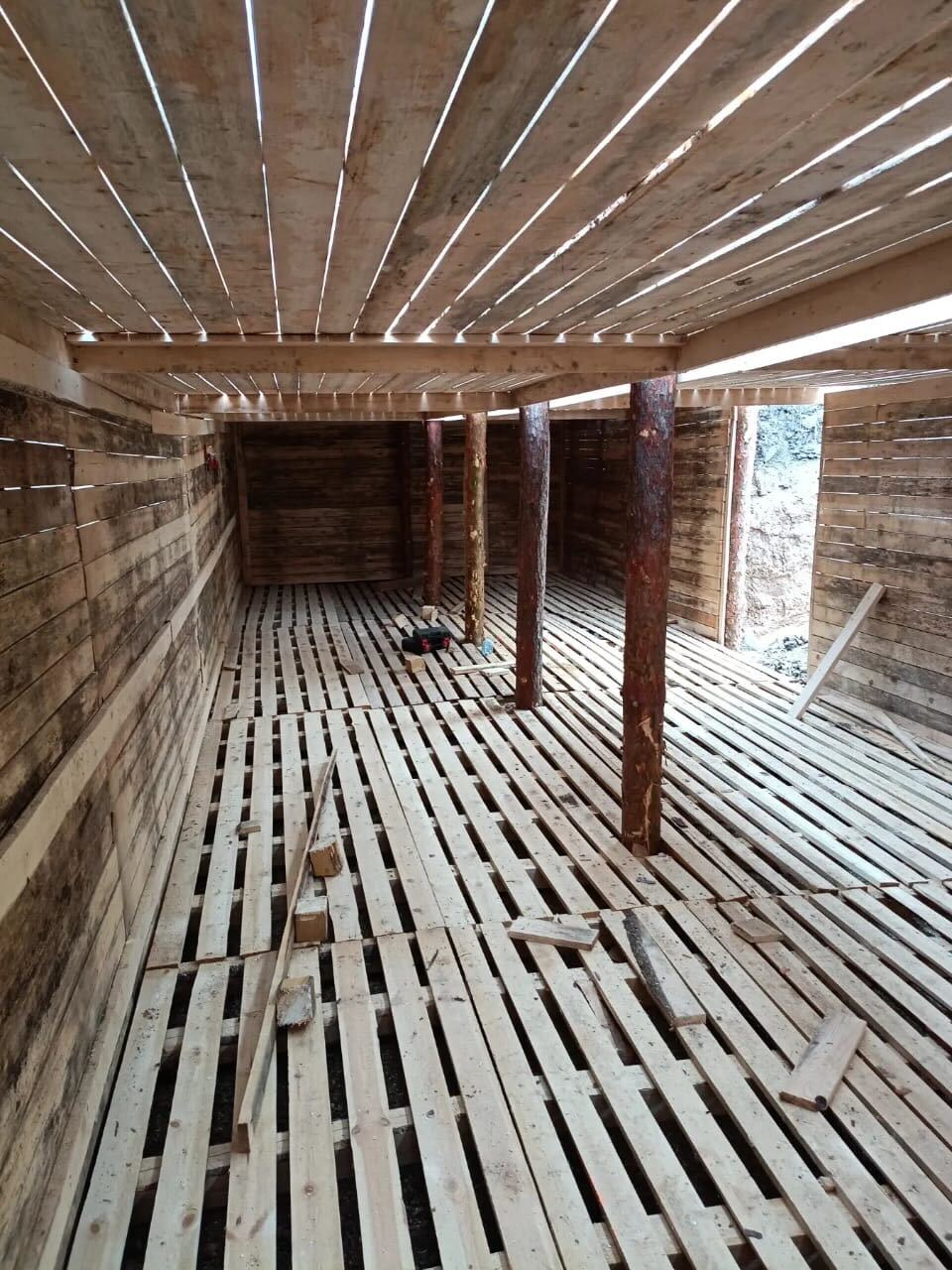
Under pressure from the families to bring back Indians from the war zone, Indian prime minister Narendra Modi said he had raised the issue and called for the safe discharge of these men during his summit with Vladimir Putin in July.
Azad says it was after Modi’s visit to Russia that his commander told him “all Indians can go back”.
“Our commanders said they have received a message from their president, and Indians would be released and sent back,” he says, crediting Modi for his safe return.






Join our commenting forum
Join thought-provoking conversations, follow other Independent readers and see their replies
Comments